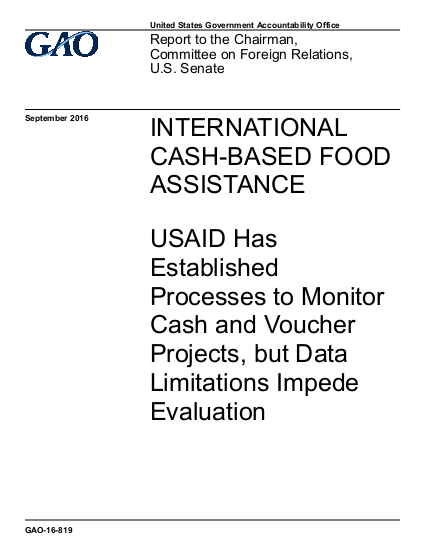USAID Has Established Processes to Monitor Cash and Voucher Projects, but Data Limitations Impede Evaluation

For more than 60 years, the United States provided assistance to food-insecure countries primarily in the form of food commodities procured in the United States and transported overseas. In recent years, the U.S.government has increasingly provided food assistance in the form of cash transfers or food vouchers. In fiscal years 2010 through 2015, USAID funding for Emergency Food Security Program (EFSP) for cash transfers and food voucher projects grew from about $76 million to nearly $432 million. GAO was asked to review USAID’s monitoring and evaluation of cash-based food assistance. This report examines, among other things, (1) USAID’s and implementing partners’ processes for monitoring cash transfer and food voucher projects and (2) the extent to which monitoring data reported to USAID can be used to evaluate the performance of such projects. GAO analyzed program data, interviewed relevant officials; and conducted fieldwork in Kenya and Liberia, selected on the basis of criteria such as funding and types of projects. GAO also reviewed the final reports for a nonprobability sample of closed cash transfer and food voucher projects.